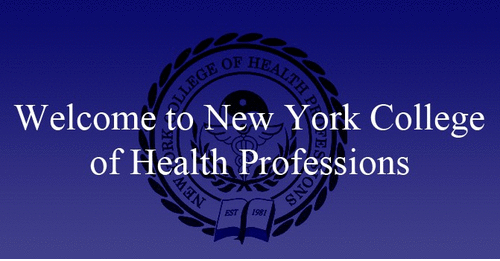In recent years, Acupuncture educational programs across the country have experienced a peak in enrollment numbers. More patients in the United States have gravitated towards holistic medicine and more natural approaches to healthcare which in turn has created an increase in job opportunities. Acupuncture is the one of the most widely practiced forms of complementary medicine in the world today. The age-old method of Traditional Chinese Medicine utilizes hair-thin needles to target specific acupoints in the body. Acupuncture is used in the treatment of chronic pain, and can also benefit patients who are looking to quit smoking or are struggling with stress, anxiety or depression.
Until rather recently, in the late 1990’s, comprehensive education was not available in holistic medicine. The only Acupuncture schools available prior to the standardization of holistic medicine education were private workshops, which were typically taught by individuals who had studied techniques abroad. Today, majority of the States in the United States require a license for Acupuncturists to be able to treat patients. In order to receive a license, a State-determined amount of hours must be spent studying the techniques and principles both in a classroom environment as well as a supervised clinical atmosphere.
Due to the steadily growing popularity of holistic medicine, the amount of Acupuncture schools opening nationwide has increased exponentially. However, not every school is accredited, or the right fit for every individual. Prior to making a decision as to the right school for you, consider the following five factors:
1. Does the school meet your State’s licensing requirements? Is it recognized by national organizations in its field?
2. Are both full-time and part-time courses available?
3. Does the school work with government financial assistance? Can you utilize grants and loans to help pay for your education?
4. Does the school offer a clinical internship where you will be able to put your knowledge to the test? Remember, this is required by most States.
5. What is the placement rate of the school’s alumni? Are most of them now working as licensed Acupuncturists?
If you are considering becoming a licensed Acupuncturist in the New York area, New York College of Health Professions is an Acupuncture school accredited by the Accreditation Commission for Acupuncture and Oriental Medicine (ACAOM) and is highly regarded in the community for its holistic medicine programs. New York College of Health Professions offers degrees in Oriental Medicine, Acupuncture and Massage Therapy as well as continuing education programs. The Graduate School of Oriental Medicine features a 145-credit, nine-trimester Acupuncture School that focuses on Acupuncture methods, Asian Bodywork Therapy, Chinese nutrition, Herbal medicine and physical arts such as T’ai chi and Yoga. The college has four locations in New York City and Long Island. In addition to the school’s exceptional curriculum, flexible schedules, affordable tuition and high placement rates, they hold open houses on a regular basis offering prospective students an inside look at the institution and its faculty and current students. Upon completion, students will graduate with a Bachelor of Professional Studies in Health Science/Master of Science – Acupuncture degree.
Until rather recently, in the late 1990’s, comprehensive education was not available in holistic medicine. The only Acupuncture schools available prior to the standardization of holistic medicine education were private workshops, which were typically taught by individuals who had studied techniques abroad. Today, majority of the States in the United States require a license for Acupuncturists to be able to treat patients. In order to receive a license, a State-determined amount of hours must be spent studying the techniques and principles both in a classroom environment as well as a supervised clinical atmosphere.
Due to the steadily growing popularity of holistic medicine, the amount of Acupuncture schools opening nationwide has increased exponentially. However, not every school is accredited, or the right fit for every individual. Prior to making a decision as to the right school for you, consider the following five factors:
1. Does the school meet your State’s licensing requirements? Is it recognized by national organizations in its field?
2. Are both full-time and part-time courses available?
3. Does the school work with government financial assistance? Can you utilize grants and loans to help pay for your education?
4. Does the school offer a clinical internship where you will be able to put your knowledge to the test? Remember, this is required by most States.
5. What is the placement rate of the school’s alumni? Are most of them now working as licensed Acupuncturists?
If you are considering becoming a licensed Acupuncturist in the New York area, New York College of Health Professions is an Acupuncture school accredited by the Accreditation Commission for Acupuncture and Oriental Medicine (ACAOM) and is highly regarded in the community for its holistic medicine programs. New York College of Health Professions offers degrees in Oriental Medicine, Acupuncture and Massage Therapy as well as continuing education programs. The Graduate School of Oriental Medicine features a 145-credit, nine-trimester Acupuncture School that focuses on Acupuncture methods, Asian Bodywork Therapy, Chinese nutrition, Herbal medicine and physical arts such as T’ai chi and Yoga. The college has four locations in New York City and Long Island. In addition to the school’s exceptional curriculum, flexible schedules, affordable tuition and high placement rates, they hold open houses on a regular basis offering prospective students an inside look at the institution and its faculty and current students. Upon completion, students will graduate with a Bachelor of Professional Studies in Health Science/Master of Science – Acupuncture degree.

No comments:
Post a Comment